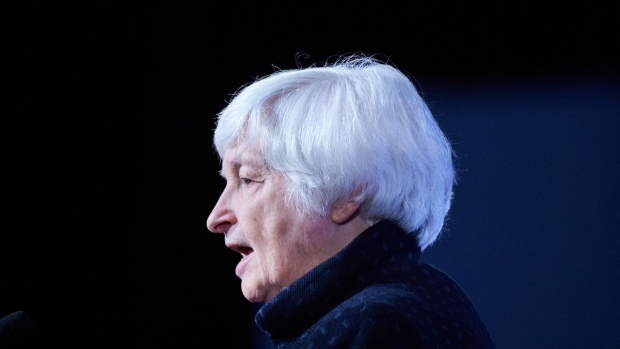Sep 29, 2023
Yellen Concerned About Evasion of Russia Oil Cap While Prices Climb
, Bloomberg News

(Bloomberg) -- Treasury Secretary Janet Yellen said that recent market prices for Russian oil suggest that the Group of Seven’s price cap is no longer working as hoped, her first such public acknowledgment of challenges with the program.
“It does point to some reduction in the effectiveness of the price cap,” Yellen told reporters while on a visit to Savannah, Georgia, when asked about reports that prices for Russian crude are now closer to $100 a barrel than to the $60 set in the cap.
The restriction is one of the sweeping financial penalties imposed over Russia’s 2022 invasion of Ukraine. Despite the unprecedented sanctions and other limits, the Kremlin has been able to keep its economy and war machine humming.
The US and its allies imposed the price cap in late 2022, aiming to deny Moscow some of the revenue from its fuel sales to undermine its war effort while keeping export volumes high to prevent world oil prices from spiking. The mechanism bans the use of Western shipping, insurance and other services for oil sold above the price cap.
Russia initially struggled to find replacements for those providers, many of which are based in London, and saw oil revenue drop. But in recent months, the Kremlin has developed its own alternatives.
“Russia has spent a great deal of money and time and effort to provide services for the export of its oil,” Yellen said. “They have added to their shadow fleet, provided more insurance and that kind of trade is not prohibited by the price cap.”
She pledged to continue efforts to stop evasion of the restrictions, but didn’t mention any specific new measures. “We are more than prepared to take action,” she said.
Yellen also said it is difficult to tell exactly what Russia’s net profit on the shipment of its oil is because the country is now also paying for many of the services that go along with it. But she said the G-7 coalition is ready to “consider over time whether there are ways that might make this policy more effective.”
©2023 Bloomberg L.P.






